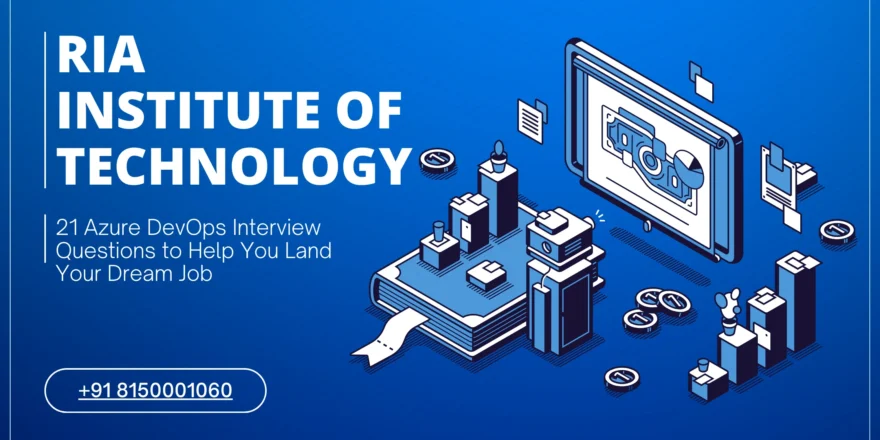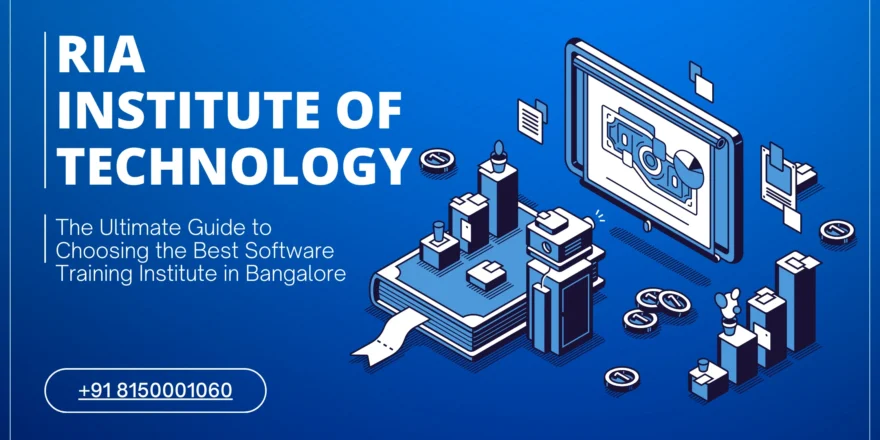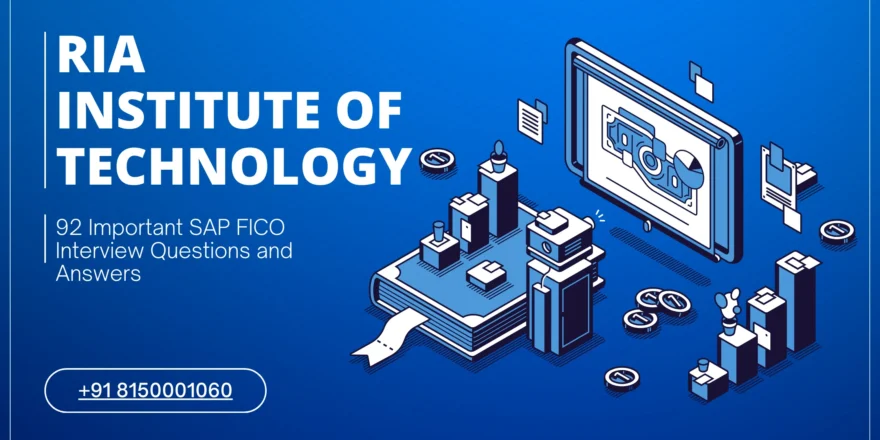Java development is a powerful and reliable programming language for creating web applications (both desktop and mobile). The following is a comprehensive analysis of Java coding interview questions to assist you make more educated selections about who you want to work with (or manage independently) on your application design and development project.
There are numerous subjects that can (and should) be addressed during Java developer interview questions. Finally, it is critical to assess your project’s specific requirements and ask the most relevant questions.
In fact, we do not advocate asking all of the questions listed below; instead, select the ones that are most relevant. This review discusses the following:
Basics Java Interview Questions for Freshers:
These are junior Java developer interview questions and answers that should be very simple for developers at all skill levels to respond during an interview. These popular Java interview questions provide an opportunity to learn more about programming as well.
These questions are intended to assist the developer (and the interviewer) feel more at ease, rather than delving into more technical questions about the framework and advanced design process in Java.
1. What is Java?
With this Java interview question, we’ll start with the basics. This sets a positive tone for the interview and allows the developer to relax before the more difficult questions emerge. Simply put, Java is a programming language. It is centred on items. It is also extremely durable and secure. The developer may also emphasise that Java is a portable programming language, which indicates that the software generated can be used on multiple computer systems.
2. Could you explain the Java Virtual Machine (JVM) in further detail?
Here’s another softball question. The Java Virtual Machine is a virtual machine that allows computer programmes to run Java (and other applications). It works like a run-time engine. The JVM compiles Java code.
3. What is a JIT compiler?
A just-in-time compiler (JIT) executes computer code in Java. This improves the performance of the Java programming language by converting bytecodes to native machine code during runtime. When a method is compiled, the JVM executes the compiled code rather than interpreting it. When addressing this Java interview question, the developer should also be able to describe the concept of compile time.
4. Describe the various access specifiers in Java.
This paves the way for additional questions about access specifiers later in the interview. Specifically, the developer should be able to discuss a wide range of specifiers. This could include (but not be limited to) public, private, protected, and default. These keywords specify the scope of methods, classes, and variables.
5. What are the most noticeable differences between Java and C++?
This is one of the simplest Java developer interview questions. Each candidate should be able to explain the distinctions between the languages. Notably, they should emphasise that Java is machine and platform neutral, whereas C++ programmes only execute on the computers on which they were compiled.
Furthermore, Java uses pointers internally (C++ allows users to use them within the programme). Of course, these are only two of the many distinctions that the developer may mention with their response. Other topics they may cover include (but are not limited to) the design aim for each, what each is used for (e.g., system vs. application programming), inheritances, operational overload, and hardware. Developers can study these distinctions using software such as Oracle’s Java Development Kit. When posing Java interview questions like this one, give them enough time to respond.
6. What is Java’s main method, and why is it static?
The main method is the starting point for the Java Virtual Machine (JVM). This is a rather straightforward question. You can test the developer further by asking more detailed questions regarding the Java main method, such as why it is static. The solution is static to avoid ambiguity.
7. Can You Explain Java Keywords? What Are Some Keyword Examples?
A keyword in Java is a term that serves a specific purpose within Java. They also have a set definition in Java. The developer should describe the various uses of the terms. For example, they could describe how it can be used as a parameter in a function or constructor call. The developer should have a general comprehension of these terms (there are around 50 total). They should also comprehend and explain the preset meaning in the compiler when answering this Java interview question.
9. Can you explain the differences between a public and private class in Java?
A public class can be accessed from anyone, whereas a private class is only accessible within its own class. Private methods cannot be overridden in Java since they can only be accessible within their own class. In contrast, fields, methods, and blocks declared within a public class can be accessed from any class.
10. What are the different stages in a thread’s life cycle?
There are various stages within life cycles. The most notable thread statuses are new, runnable, running, waiting/blocked, and dead/terminated. It is critical to grasp the distinctions between the states and be able to articulate them during the interview.
11. Explain the Super Keyword. Why Would You Use Super Keywords?
The super keyword is commonly used to access the data member of the parent class. However, it can be utilised in a variety of ways. It is critical that the developer understands and can explain super keywords in Java.
12. What is the definition of a class in object-oriented programming?
Object-oriented programming (OOP) organises software design systems by using data, classes, and objects. In Java, a class is a user-defined type that declares and defines additional types, while an object is a single instance of that class. It is critical for developers (including those with less expertise) to have a solid understanding of these relatively simple OOP principles.
13. Describe the Static Method.
Static methods belong to a class. They are not just instances of a class. A static method serves various uses. Notably, they are utilised when a utility (or helper) method does not need an object state. Many developers appreciate static methods because they eliminate the requirement to create an object in order to call them. They can also access and modify the value of a static variable. Ideally, you should engage a Java developer who understands and implements the static method correctly.
Java Collections Framework Interview Questions
Answering these Java developer interview questions will allow the developer to discuss the Java framework and base classes. Here are some Java developer interview questions and answers that will assess the candidate’s understanding of framework-related subjects.
14. Discuss the role of heap memory in Java development.
The heap memory is one of the Java Virtual Machine’s memory components. It is created at the start of the JVM and might be static or dynamic. It is generally used to dynamically allocate memory to Java objects and classes. This is only a portion of the answers the developer should be able to deliver during the interview.
15. Explain the differences between Spring Beans and JavaBeans.
Spring beans are things controlled by a spring. Spring beans are also instantiated. More broadly, the Spring Framework offers a complete programming and configuration framework for modern Java-based enterprise applications. The JavaBean is serializable and not handled by the Spring IOC. These are crucial distinctions. As a follow-up to this inquiry, consider asking each developer their thoughts on both. Discuss the advantages and disadvantages of using Spring beans and the Spring Framework.
16. What are the Public Static Void Main String arguments in Java?
In Java, the program’s execution begins with the public static void main. This is one of the most important ways for Java development. The ideal developer understands this procedure and can easily describe it when asked this Java interview question.
17. What is an abstract class?
An abstract class is (in its most basic form) a class that is declared abstract. This implies that it is restricted and cannot be used to generate objects. Its method must likewise be implemented. An abstract class may contain an abstract method, a non-abstract method, a constructor, and a static method.
18. What are Finally Clases and Finally Blocks?
A final class is also an option, albeit less typical. This question digs deeper into the developer’s understanding of classes and how they are used for programme development in Java. A final block is more advanced and tests the developer’s extensive expertise.
Interview Questions for Senior Java Developers
The following are key Java interview questions for experienced programmers. These Java advanced interview questions and answers are more in-depth than the questions covered previously. You can use these questions with all developers you interview, or just those who have demonstrated a level of experience and knowledge that stands out from the competitors.
Java Interview Questions for Developers With Five Years of Experience
Here are some Java interview questions for beginners. Hiring a less experienced developer can help you fulfil stricter project budget restrictions, but you must ask the proper questions to verify the developer is a good fit.
19. What is the distinction between an abstract class, a child class, and a parent class in Java?
To put it simply, abstract classes contain abstract methods, which are methods that have been specified but not implemented. A parent class, also known as a base class or superclass, contains child classes (or subclasses). Writing a child class often includes the use of keywords (as mentioned above) and other techniques. A child class (or subclass) is inherited from the parent class and can be abstract or not. The developer should have a thorough understanding of all of the various classes and interfaces and how they are utilised in Java.
20. Compare the Static Class Method to the Instant Method. What are the differences?
The immediate method is used for any method that is not declared static. To invoke a static method, you do not need to build an object, whereas instance methods require objects. This is a straightforward yet important distinction that the developer should be able to clarify during the Java developer interview.
21. What Is the Difference Between Public and Static Void?
These specify how a piece of code may be accessed. A public void acts as an access specifier, indicating that the method is publically accessible. A static void, on the other hand, indicates that the object does not need to access static members. The developer should be able to define the fundamental differences between public void and static void, as well as other details about public (and private) voids and public keywords.
22. What is the purpose of Java’s static variables?
Java uses static variables for memory management. They can be used alongside variables, blocks, methods, and nested classes. They often refer to the shared property of all objects. They only receive memory once, when the class loads. The developer must have a thorough understanding of static variables in Java and how they are used. They should also have a more general understanding of all variable types in Java, such as local variables, instance variables, and final variables.
23. What restrictions apply to static methods?
The static technique is subject to two major constraints. For example, static methods cannot access non-static data members. Furthermore, the super cannot be utilised in a static environment (since it is non-static by definition). The developer should be aware of these limits.
24. What Is the Difference Between Nested and Inner Classes? If so, please highlight the differences.
Java developers frequently confuse nested classes and inner classes, leading to their misuse. The short answer: Inner classes are non-static nested classes, therefore there is a distinction between the two, and the phrases are not interchangeable. The inner classes are simply a subset of the bigger nested class.
25. How Should You Use the Equals Method in Java?
The equals method compares two independent strings and returns “true” if they are identical; “false” otherwise. Most developers use the equals function to compare two strings lexicographically. This is a more advanced question because many beginners do not utilise the equal technique frequently (if at all) and may be unable to explain it completely. In other words, this inquiry is an excellent way to assess the developer’s total expertise and knowledge.
26. Could you provide an example of multiple inheritance in Java?
In Java, multiple inheritance allows a class to inherit from multiple classes. In other words, it is a single class with several superclasses. The developer should be able to describe various inheritances and explain how they help the Java development process.
Java Interview Questions for Developers With Ten Years of Experience
Of course, professionals with more than a decade of expertise with Java should have a deeper understanding, especially if you plan to pay them more than a newer Java developer. The following are Java interview questions for senior developers. These Java interview questions provide further information about the senior developer’s skill level.
27. What is the purpose of a default constructor in Java?
A default constructor is a method that sets up an object’s state. It is called when a class object is generated in Java. There are three sorts of constructors: default, parameterized, and no-arg. The developer must comprehend the distinctions between each. You can specifically question them about the default constructor, as it is the most fundamental and important to comprehend.
28. Could you explain String Pool in Java?
In Java, a string pool is a storage region in the Java heap memory. It does exactly what the name implies: it stores strings. As a follow-up inquiry, consider asking the developer to describe immutability in terms of strings. The goal here is to ensure that the developer understands what a string (and string pool) is within Java, as this is critical to quality programming.
29. Could you please explain the role of a Copy Constructor in Java?
This is a bit of a trick question because there is no copy constructor in Java. The copy constructor is an essential feature of C++. The developer should grasp this change in Java, and this Java developer interview question will help guarantee that the two are not confused. Although there is no copy constructor, the developer can copy values from one object to another and should be able to explain how.
30. What is the relationship between a Java Runtime Class and a Java Runtime Environment?
A Java runtime environment (JRE) loads applications within Java for the Java Virtual Machine to execute. The Java Runtime class communicates with the Java Runtime Environment. The developer must grasp the relationship between the JRE and each runtime class. A follow-up Java inquiry about catch blocks and how they are utilised in run-time systems.
31. Please describe object cloning, including both advantages and disadvantages.
As the name implies, this is the process of cloning an object in order to create two identical objects. There are both benefits and cons to using the clone() function. For example, the developer may highlight the ability to avoid writing redundant code (and so wasting valuable development time) as a primary benefit of object cloning. However, there are limitations that the developer should be able to point out. Similarly, you can consult with the developer concerning pass-by value (and pass-by reference).
32. How are the Runnable Interface and Threads related in Java?
Instances of a runnable interface can function as threads. The runnable interface is a core interface in Java development, and the developer should understand and be able to explain it. Also, because threads are an essential component of the runnable interface, they should be able to explain how they are used. The developer should be able to describe how to build the runnable interface.
Java Technical Interview Questions
Technical Java interview questions and answers delve further into the backend procedures. These are the best Java interview questions to assess a developer’s understanding of the technical aspects of Java development. By answering these Java interview questions, you may establish whether each developer possesses the requisite knowledge to accomplish your project.
33. How Do You Define a Derived Class from a Superclass in Java?
A derived class is any class that inherits properties from the superclass. The ability to construct a derived class is a fundamental and simple skill for both new and experienced Java developers. When answering junior Java developer interview questions (and, to some extent, senior Java developer interview questions) like this one, they should be able to define both the derived class and the super class, as well as explain how to create a derived class that derives its properties from the super class (or base class).
34. How, if at all, are the Sleep and Wait methods different and similar?
The fundamental distinction between the sleep and wait methods is the class under which they are defined. The Object class defines a sleep method, while the Thread class defines the same function. The developer may additionally address lock release, which occurs during the sleep method but not during the wait method.
35. Explain the purpose of the “This” keyword in Java.
This keyword is used frequently in most Java programming projects. It is critical for the developer to grasp the various applications of this keyword. For example, the developer could discuss how the keyword can be used to implicitly invoke current class methods. However, the developer has a wide range of options for answering this question.
36. Could you explain the purpose of Java’s final variable?
The final variable prevents the user from making further adjustments. It can only have one value assigned to it, and it must be done so through the class constructor. The developer must be able to describe the purpose of a final variable in Java development. A decent follow-up to this inquiry would be to ask them what a final keyword in Java means.
37. What are some of the guidelines for method overloading in Java?
This question assesses the developer’s understanding of method overloading in Java. Overloading happens when a single method has many parameters. The developer should be able to explain the rules of method overloading, such as whether they can be synchronised, how to declare them static or non-static, and so on. As a follow-up, you can ask the developer to clarify the distinction between method overloading and method overriding.
38. What is the purpose of garbage collection in Java?
When designing apps in Java, developers should make good use of their available space. This Java developer interview question tests their ability to do so. A garbage collector, often known as garbage collection or GC, is a process within Java that provides for automatic memory management.
The goal of garbage collection in Java is to eliminate unwanted objects. This optimises storage space within the Java Virtual Machine. In other words, this function defines the variable but does not initialise it. This technique is also known as the gc() method in Java. For a follow-up question, ask the developer how garbage collection is managed.
39. How is Garbage Collection Controlled?
The garbage collection is handled by the Java Virtual Machine. Most project developments include some form of rubbish collection. It is critical to have complete control over this throughout each project. The ideal developer has experience managing garbage collection within the JVM.
Conclusion
We hope these Java programming interview questions were helpful. Are you planning to interview and recruit a Java developer? Ria Institute of Technology can provide you with experienced and reputed Java developers. To learn more and get started, please contact us immediately.






